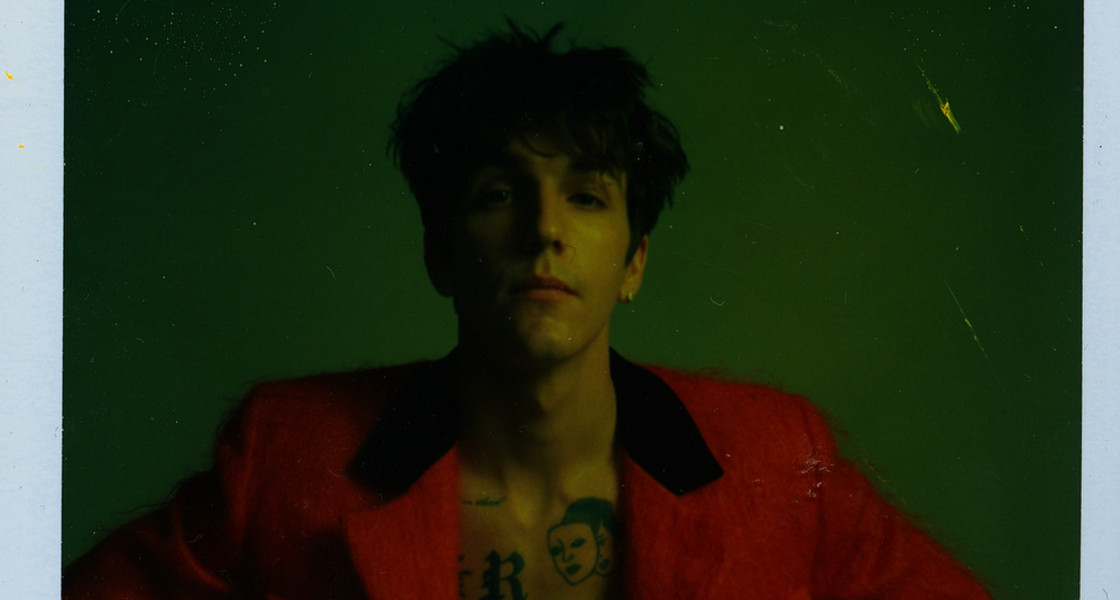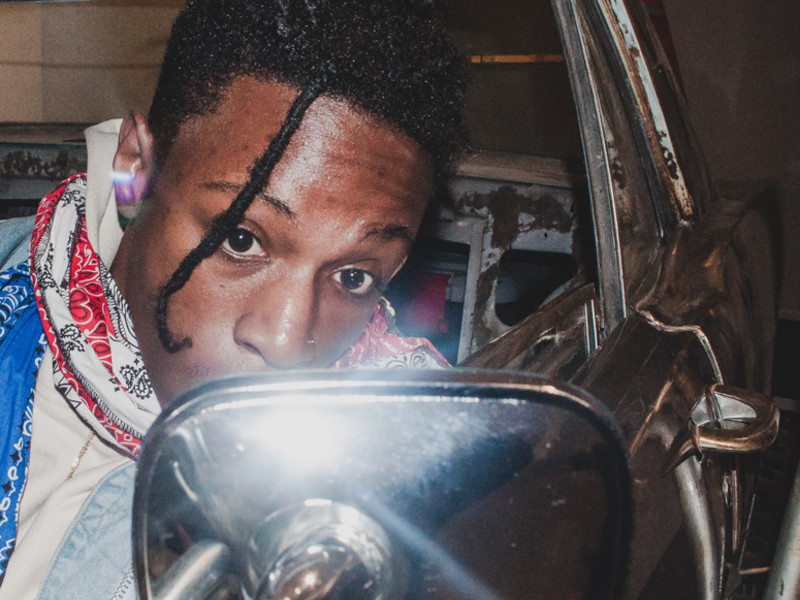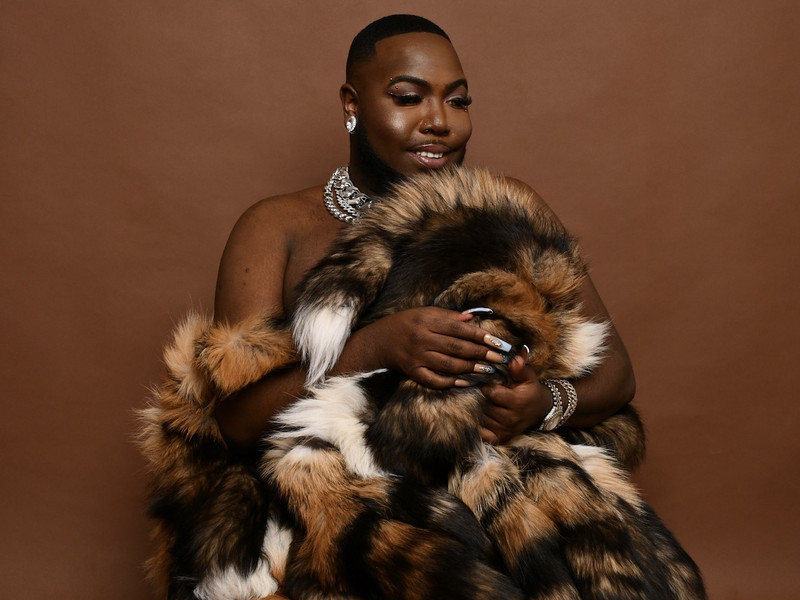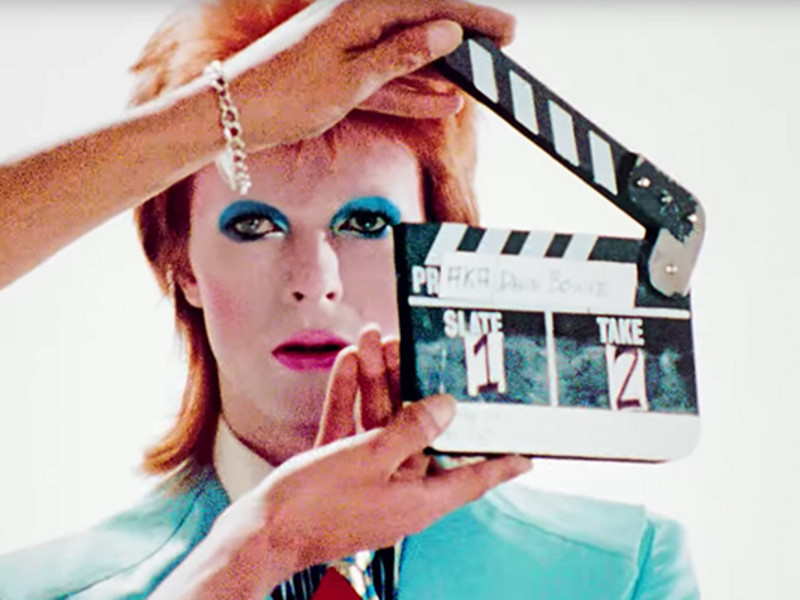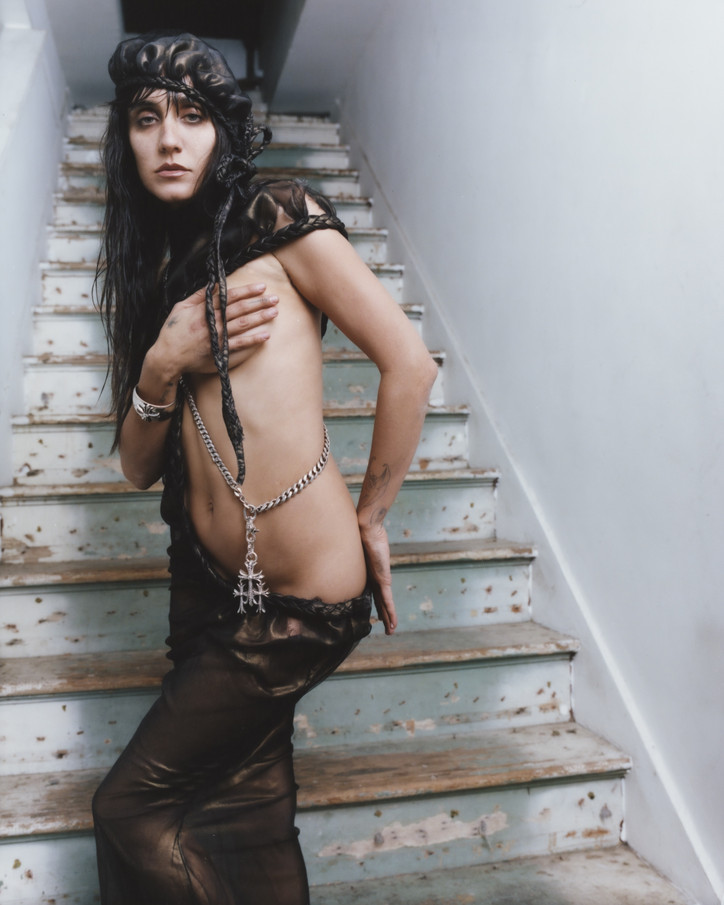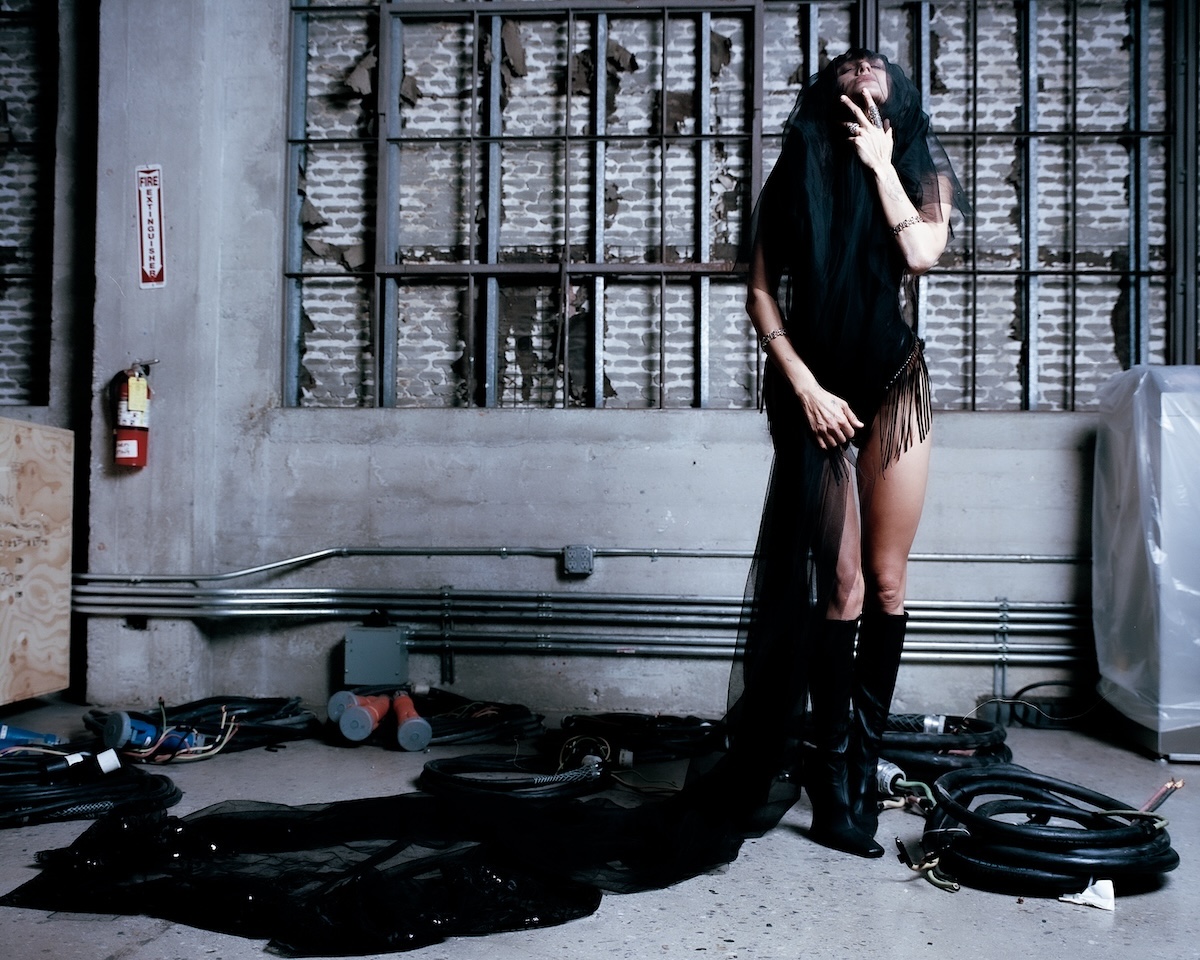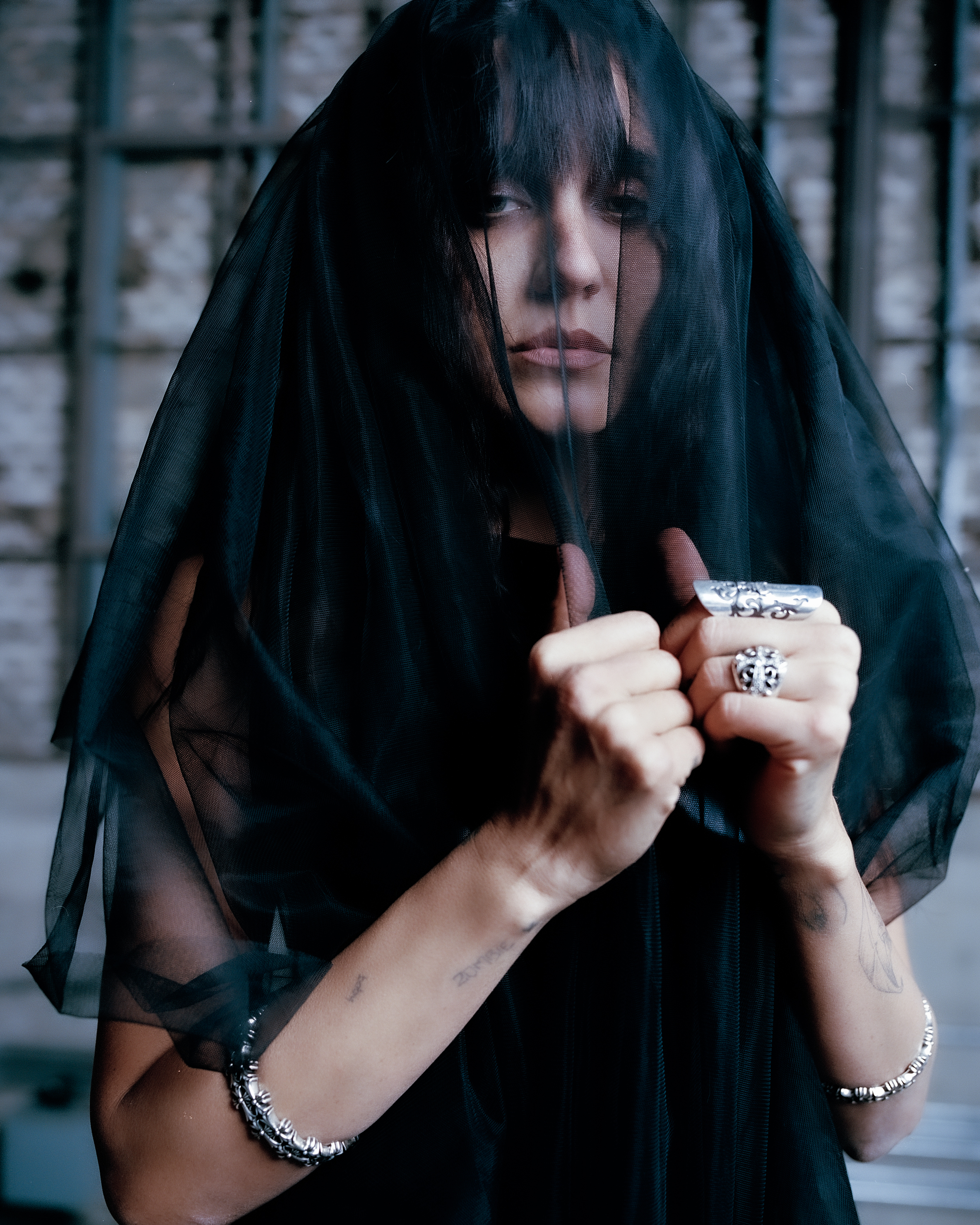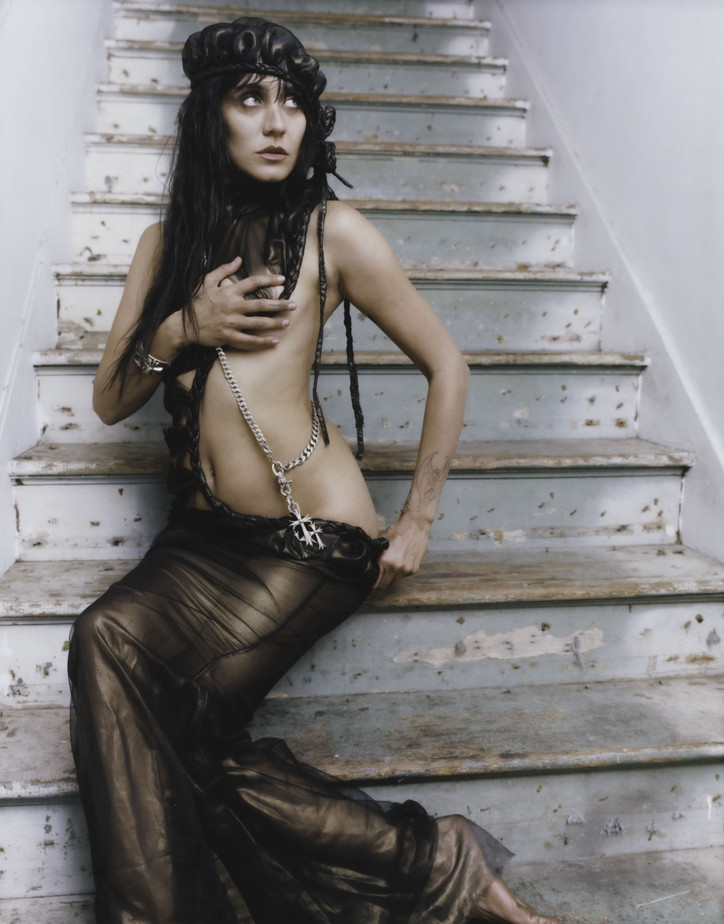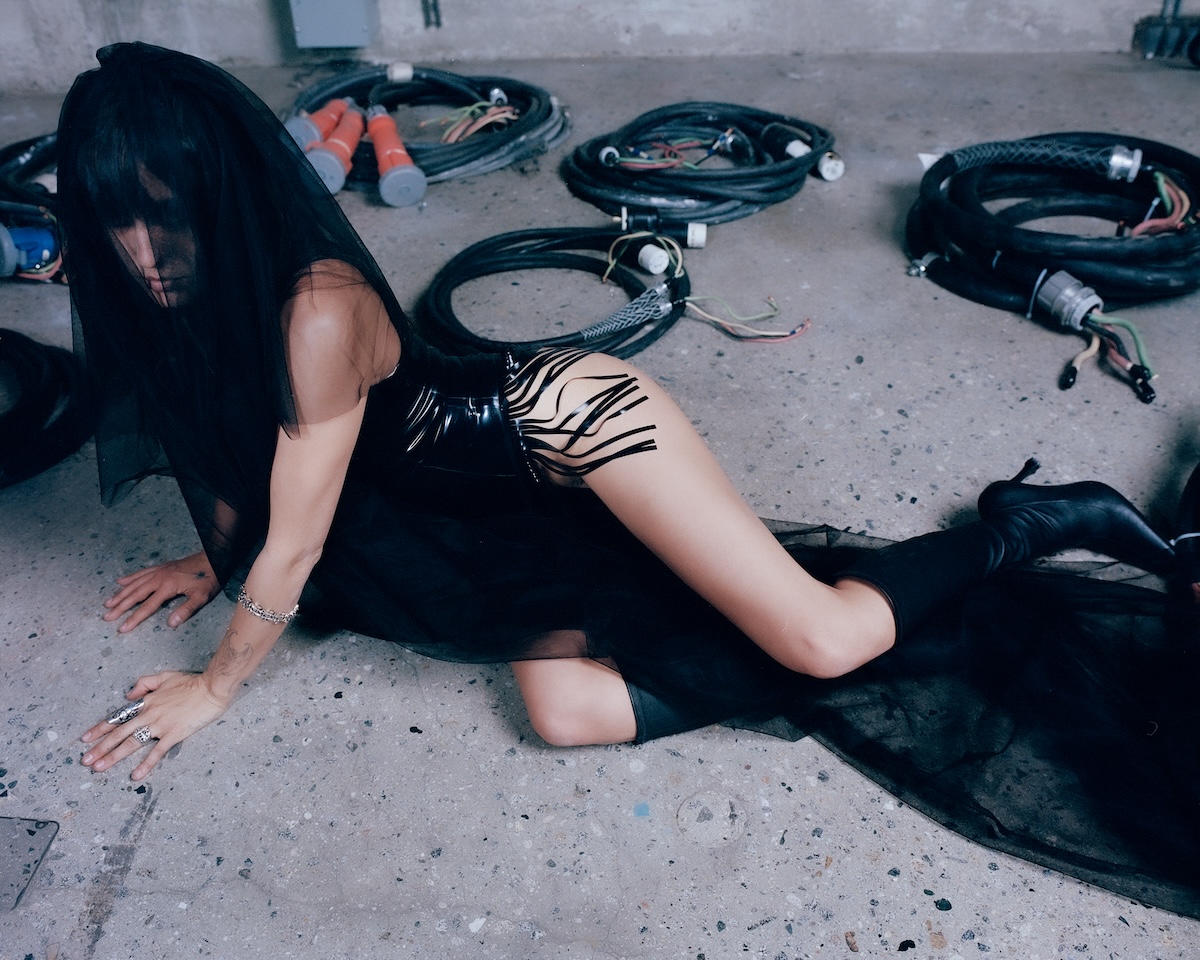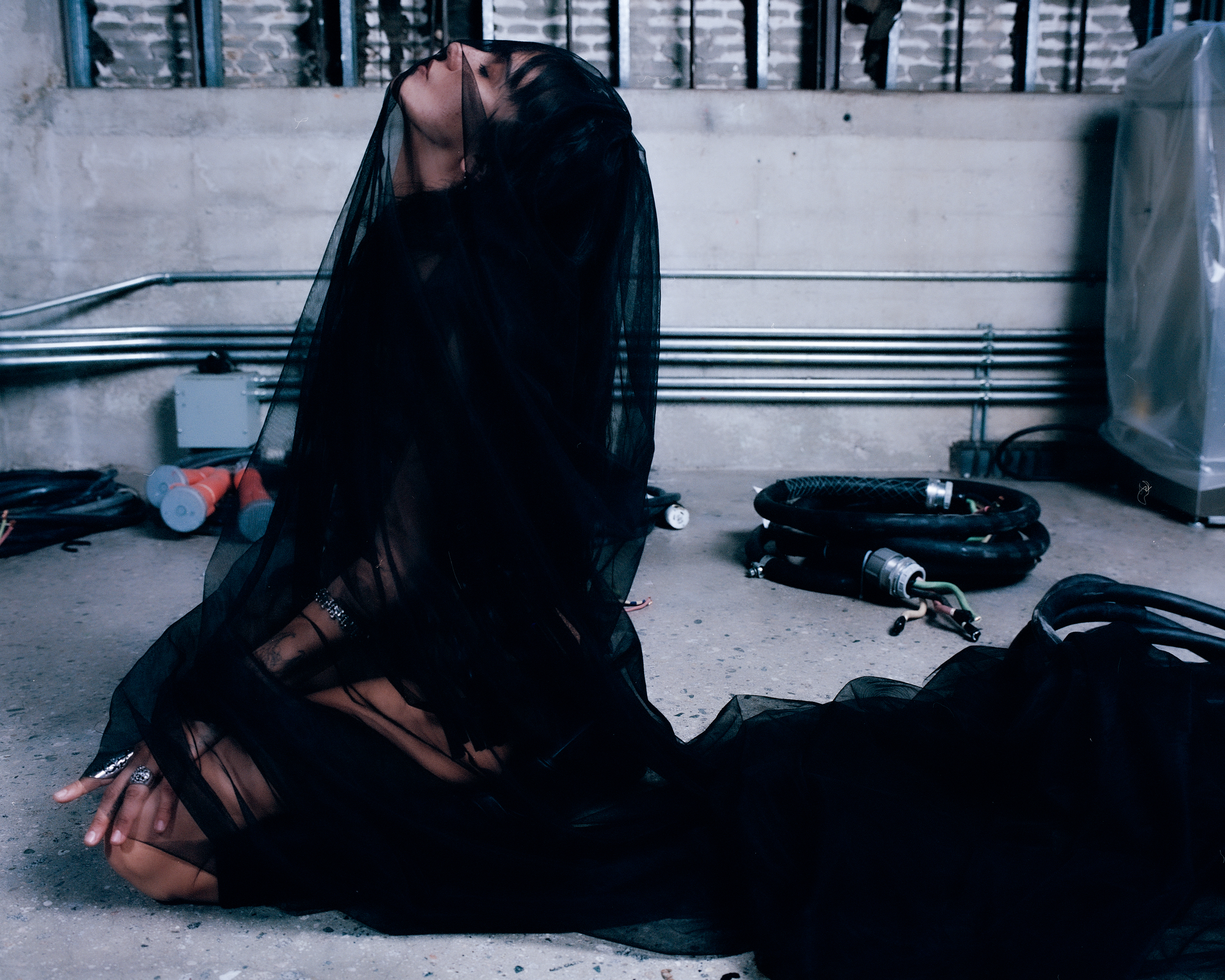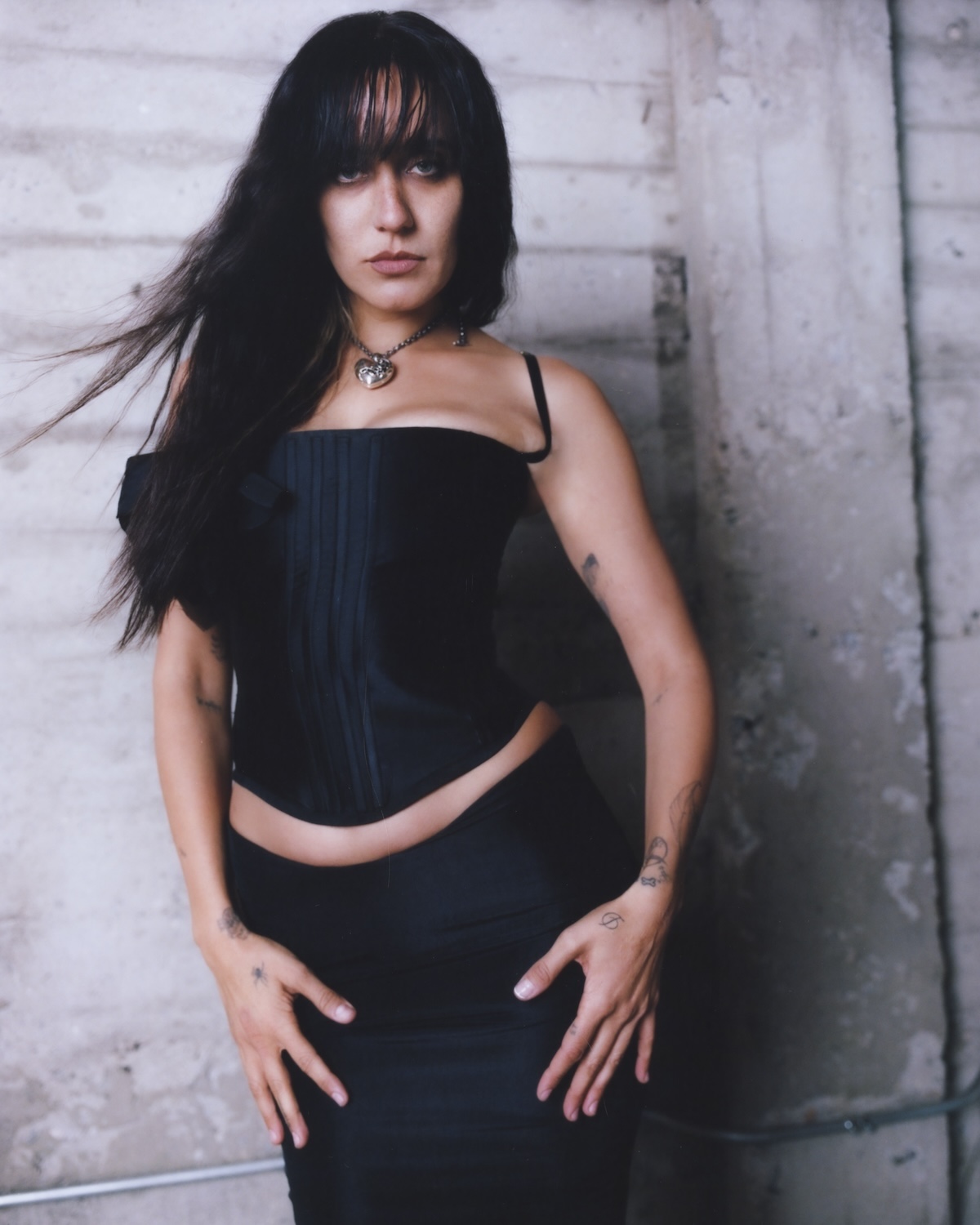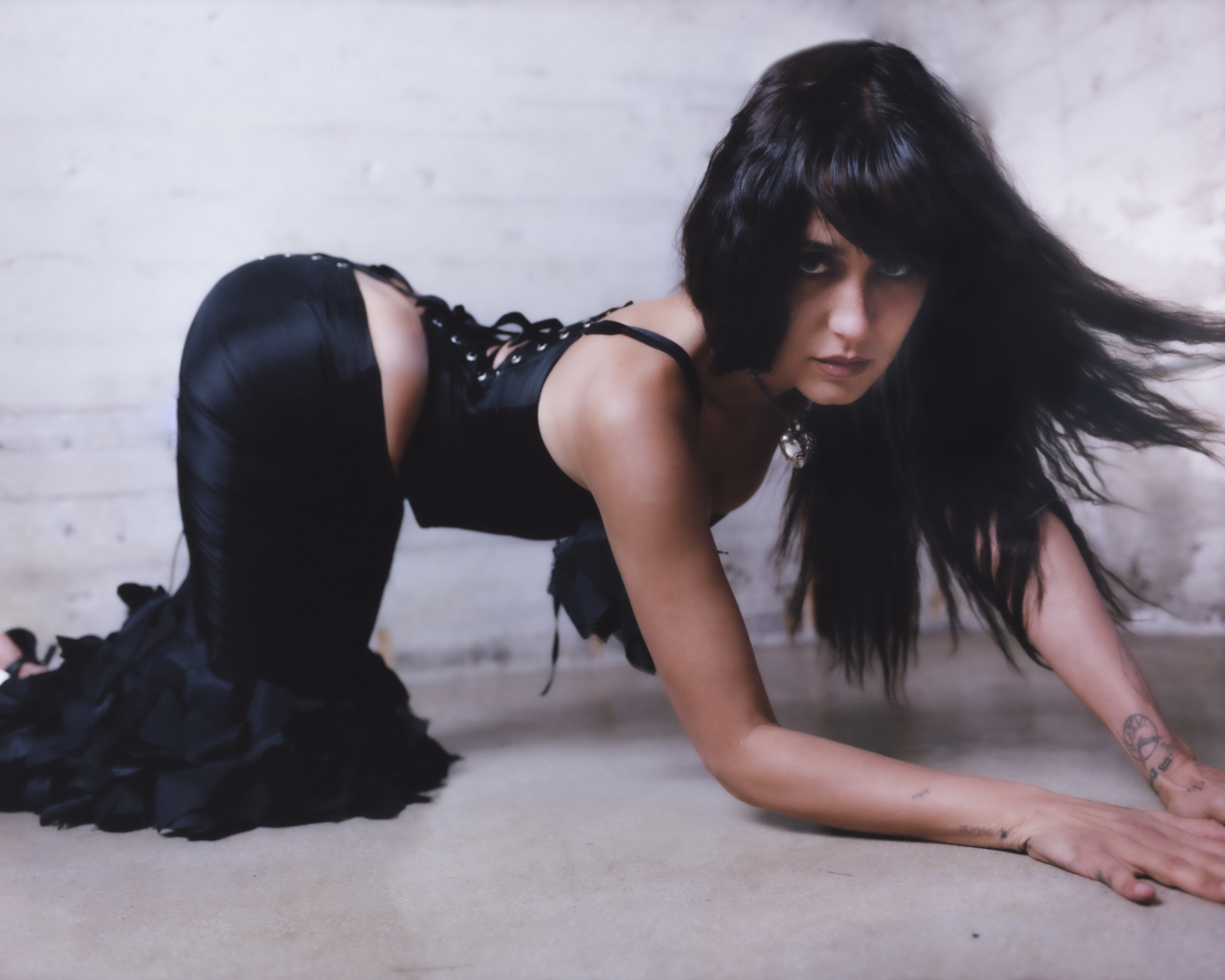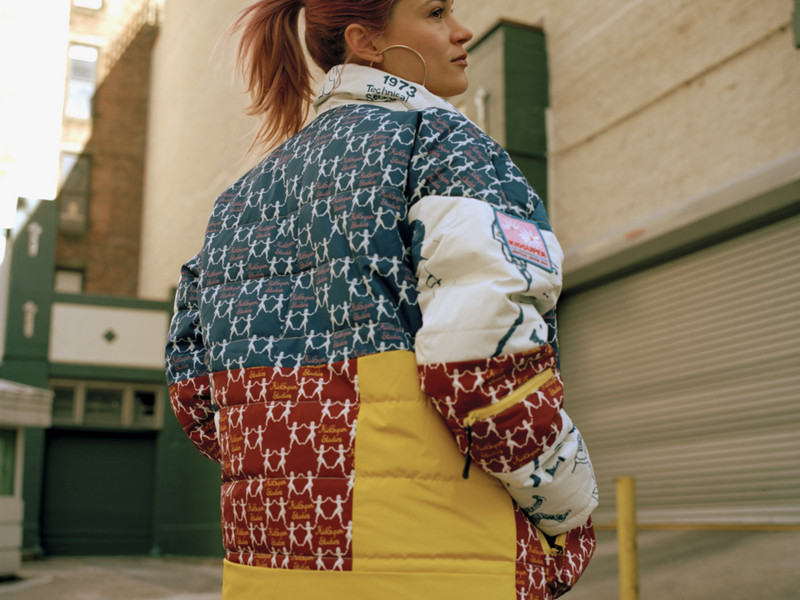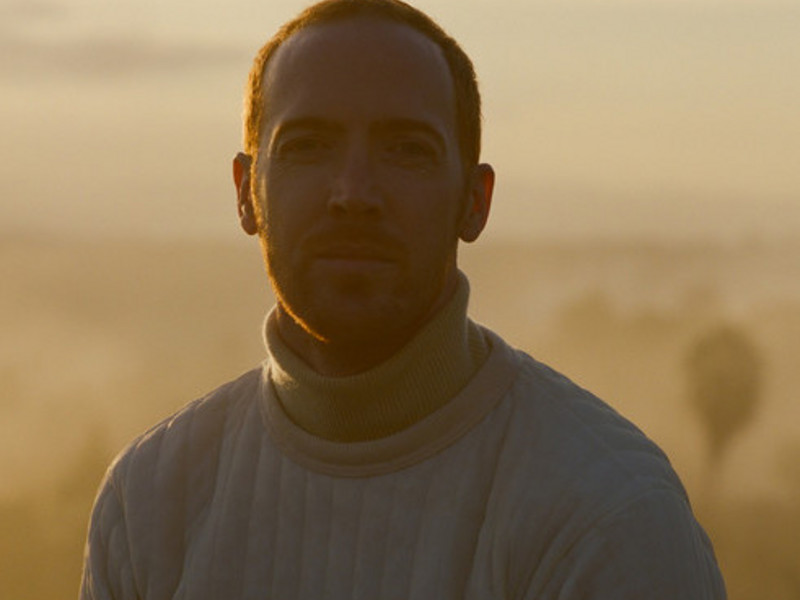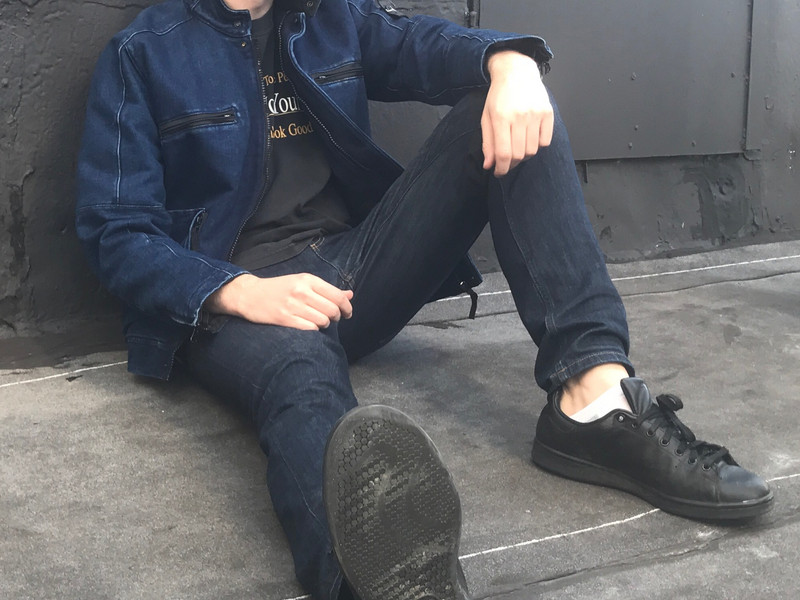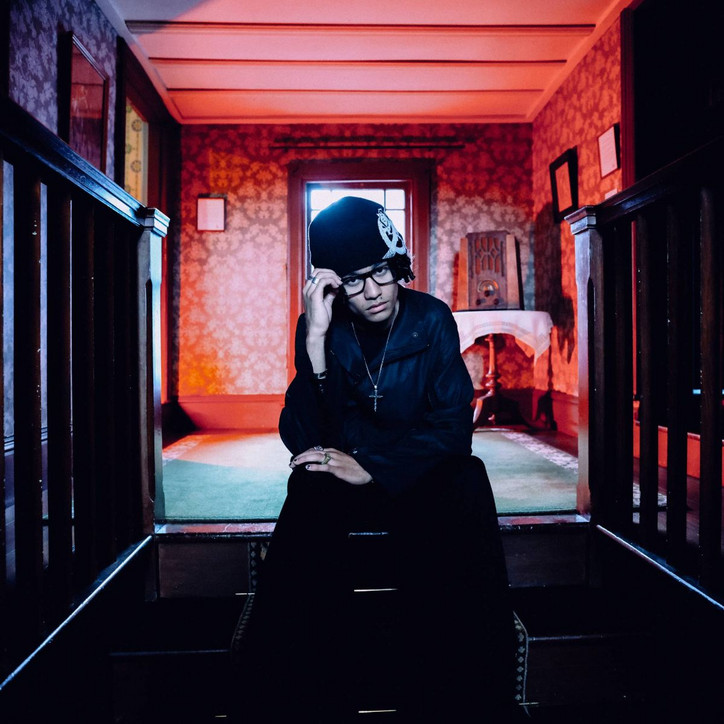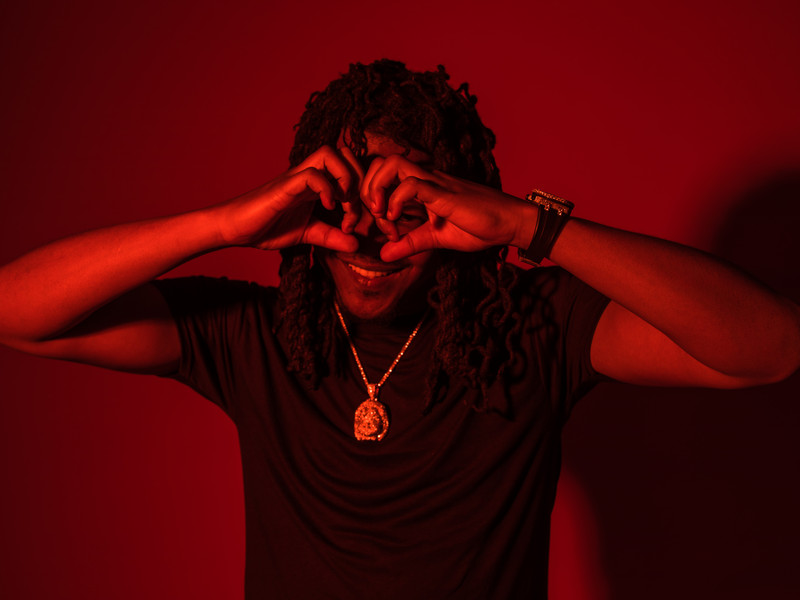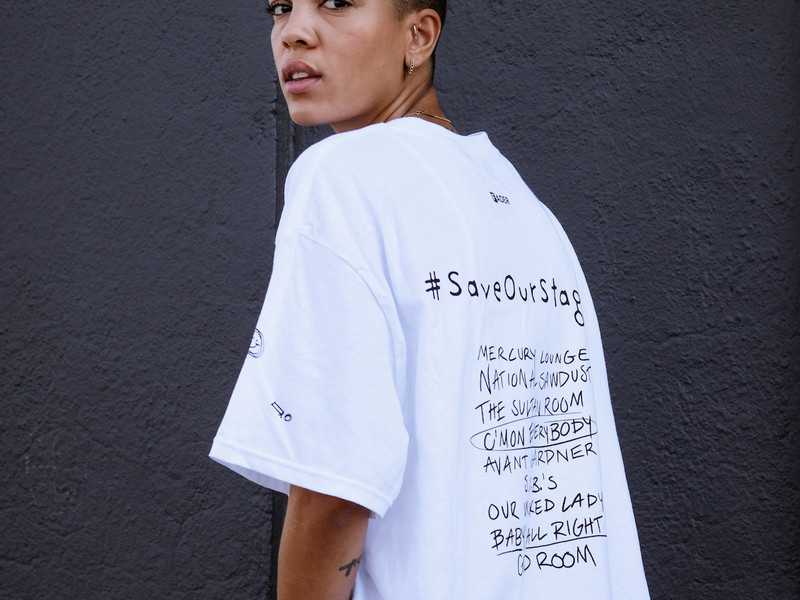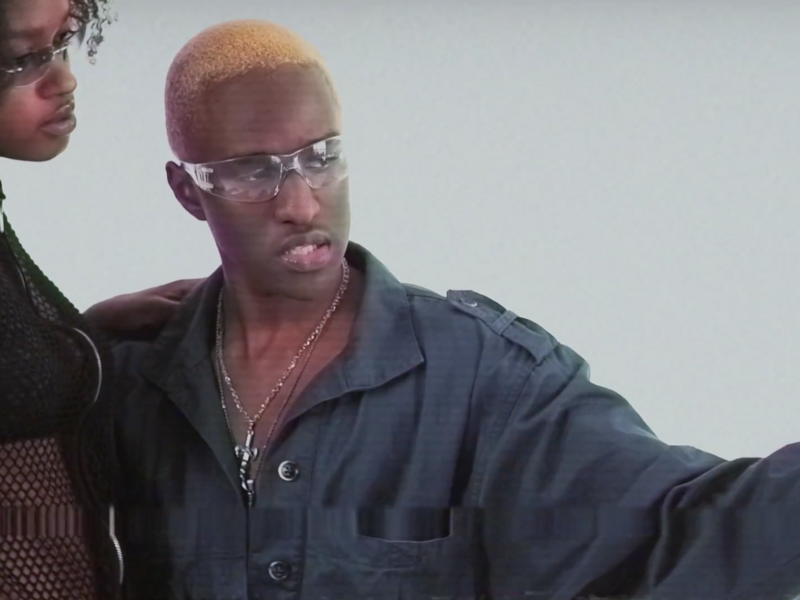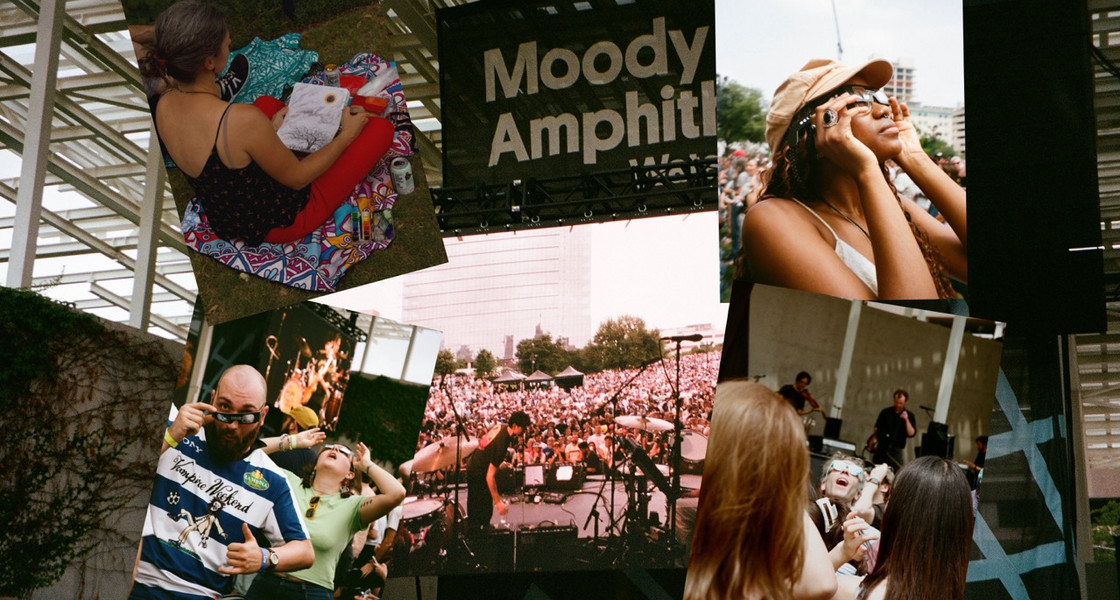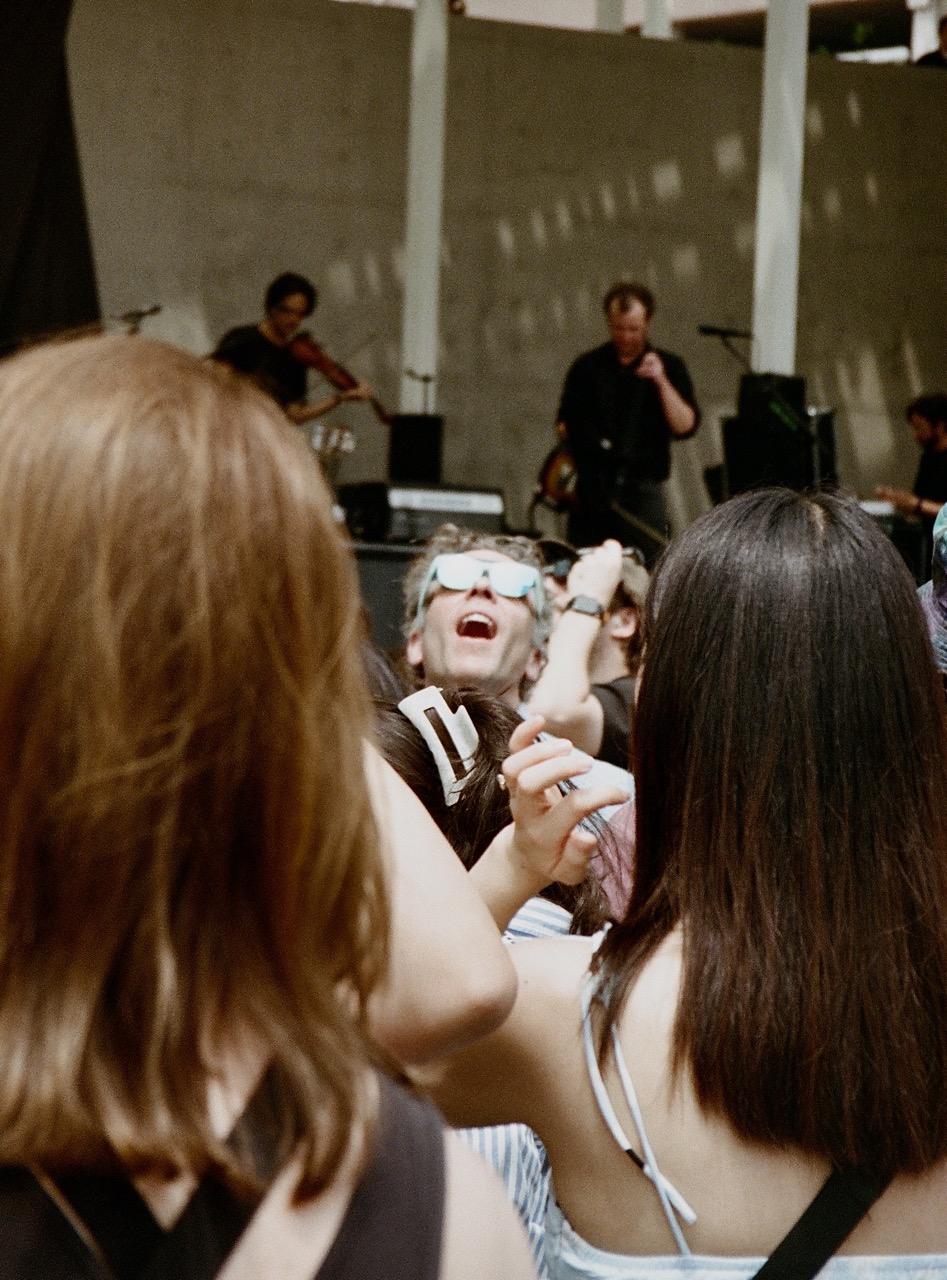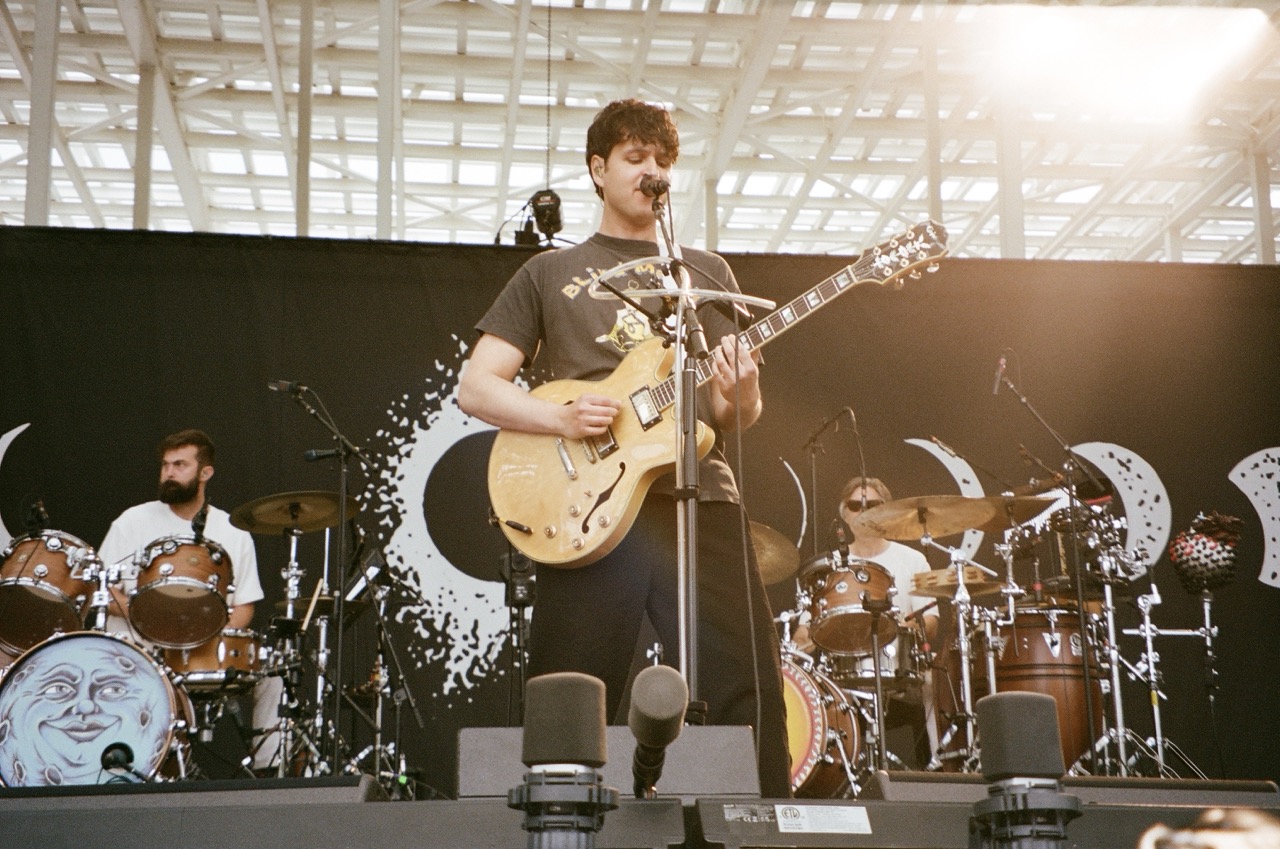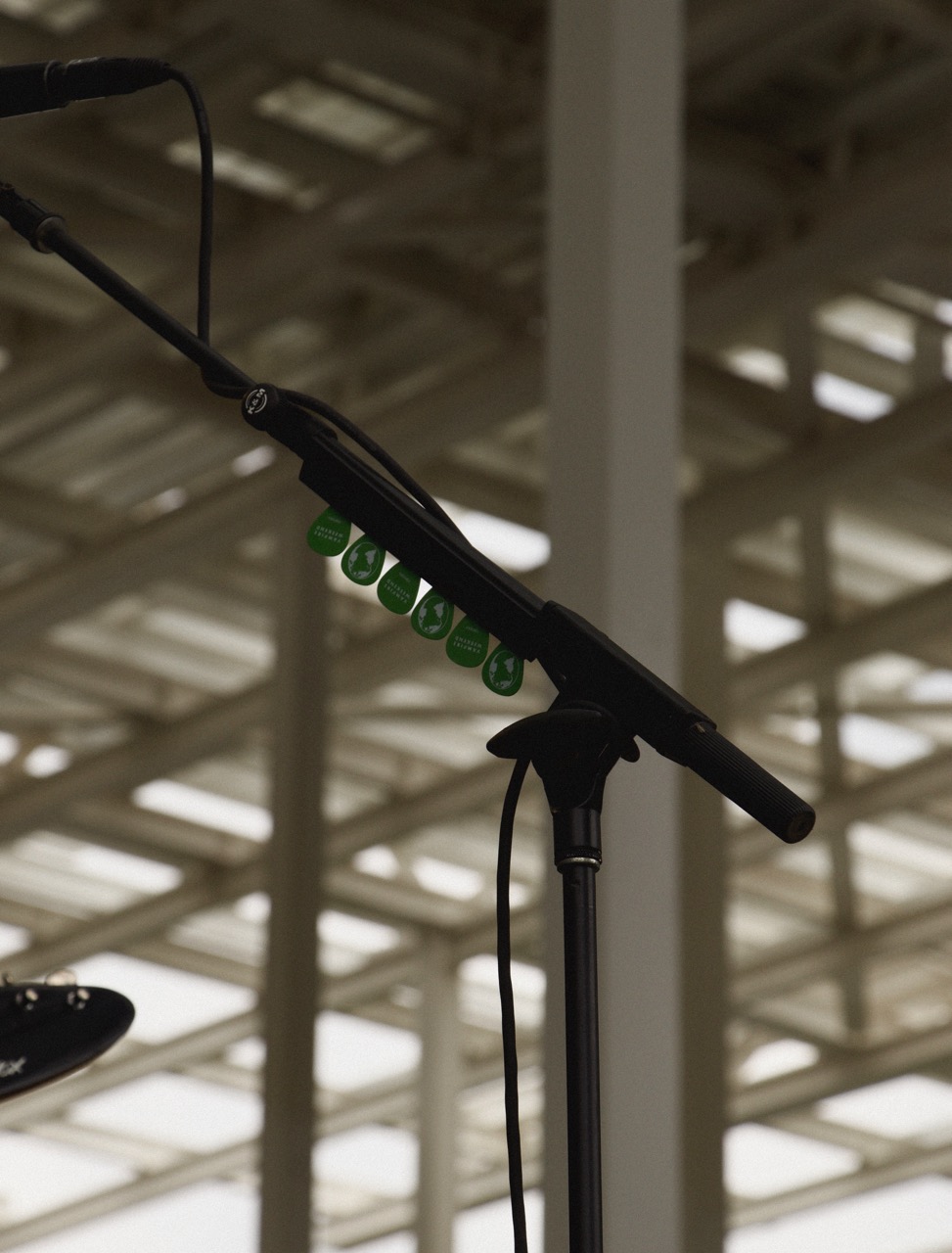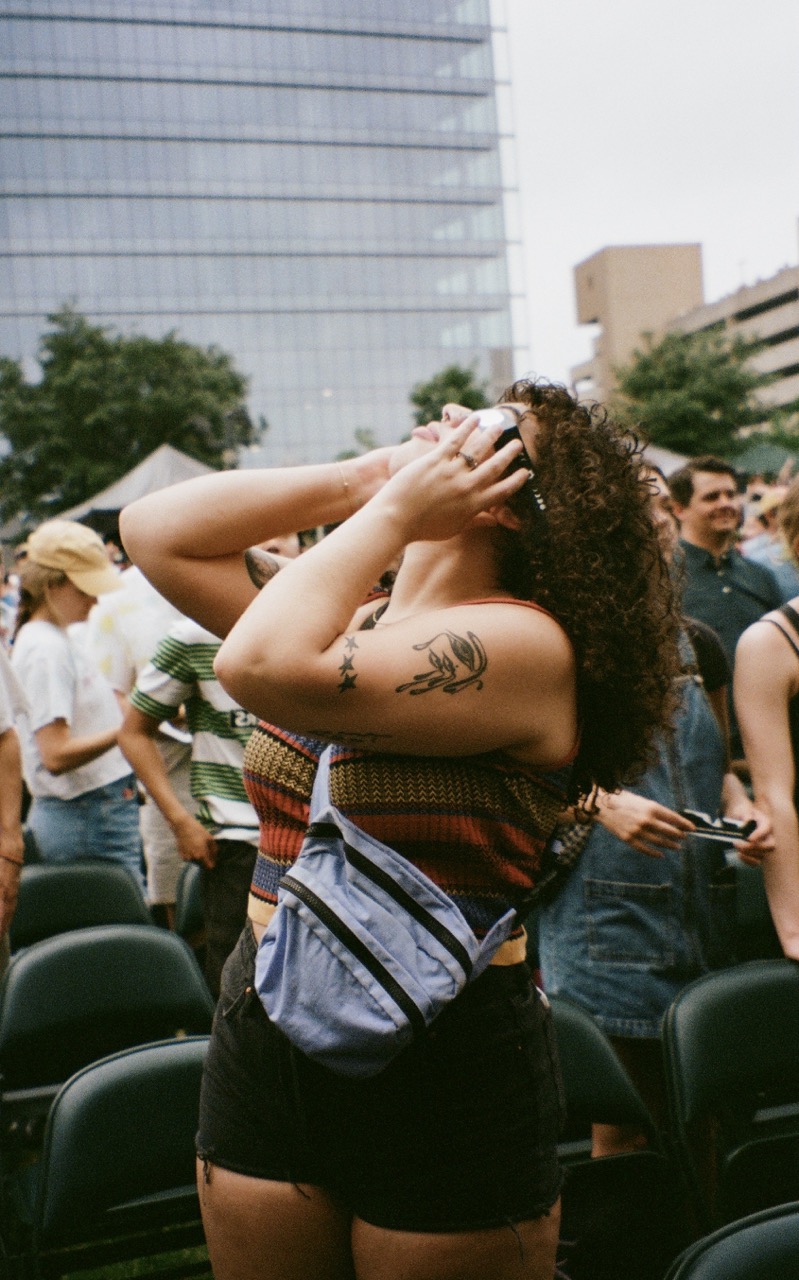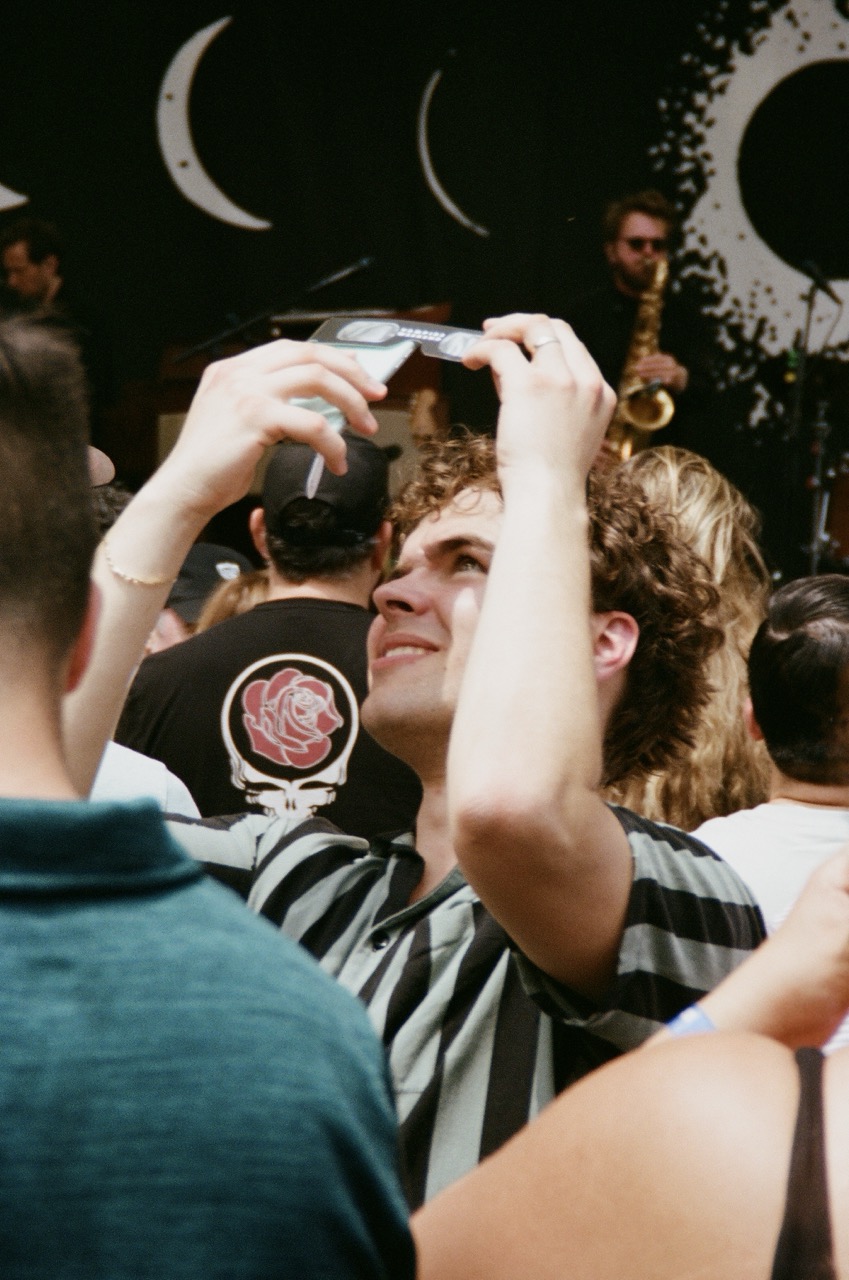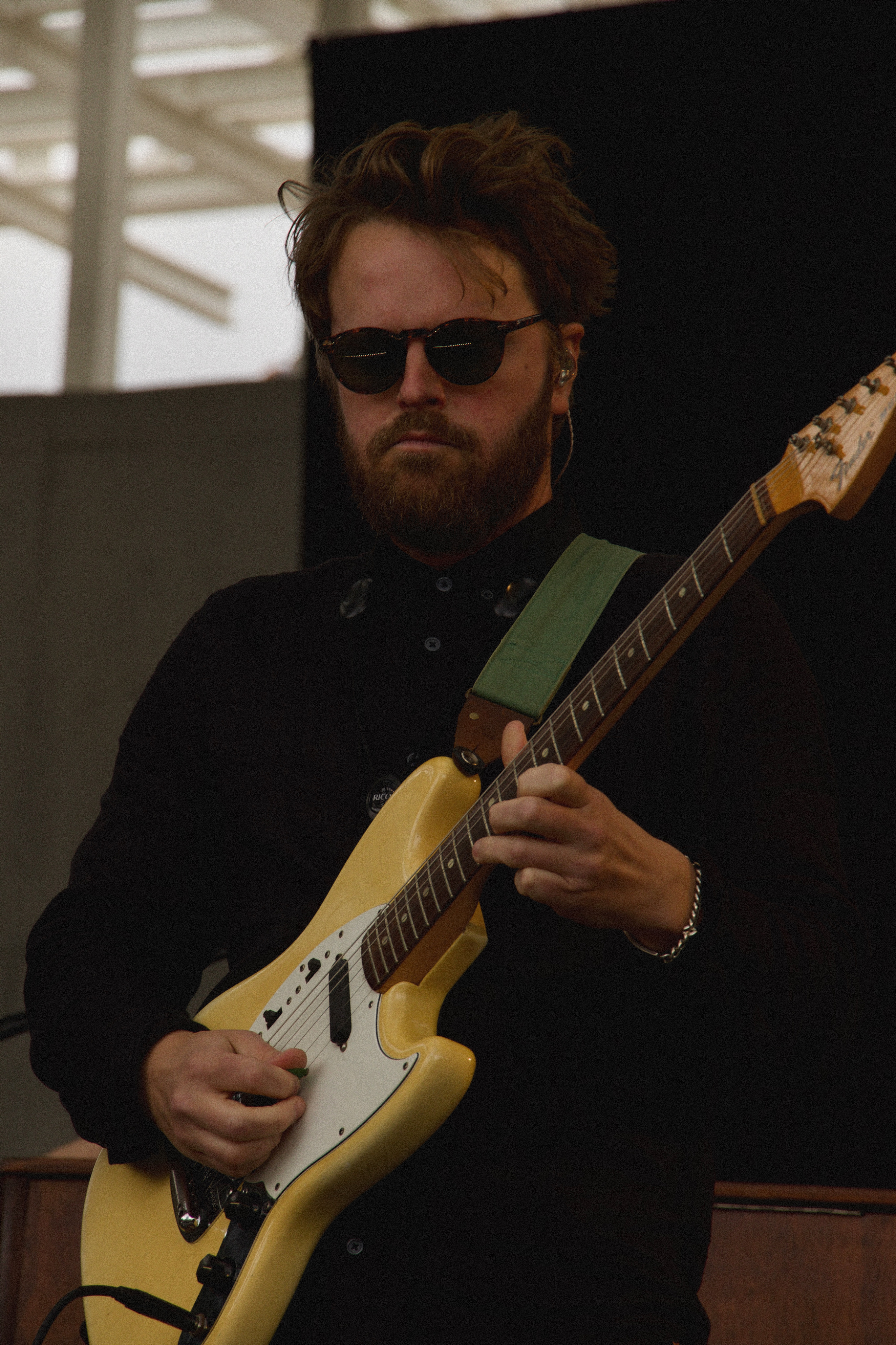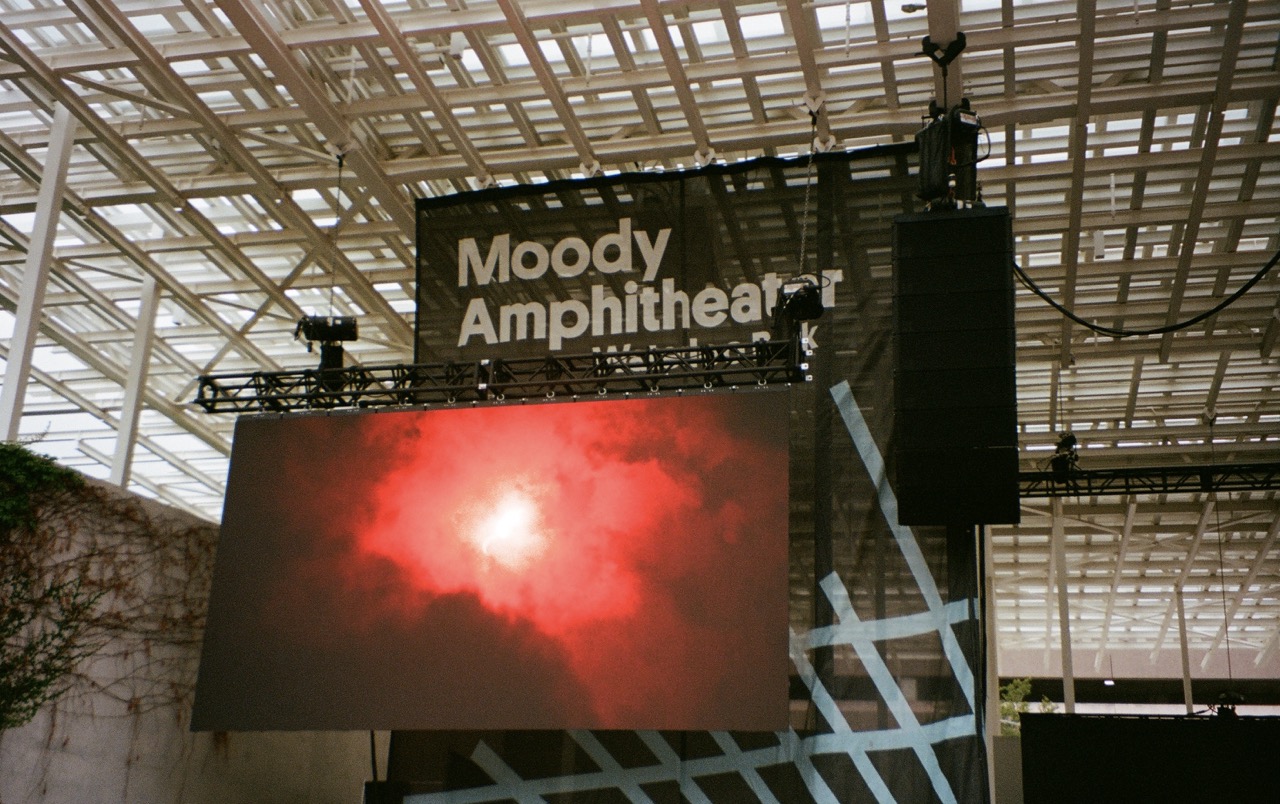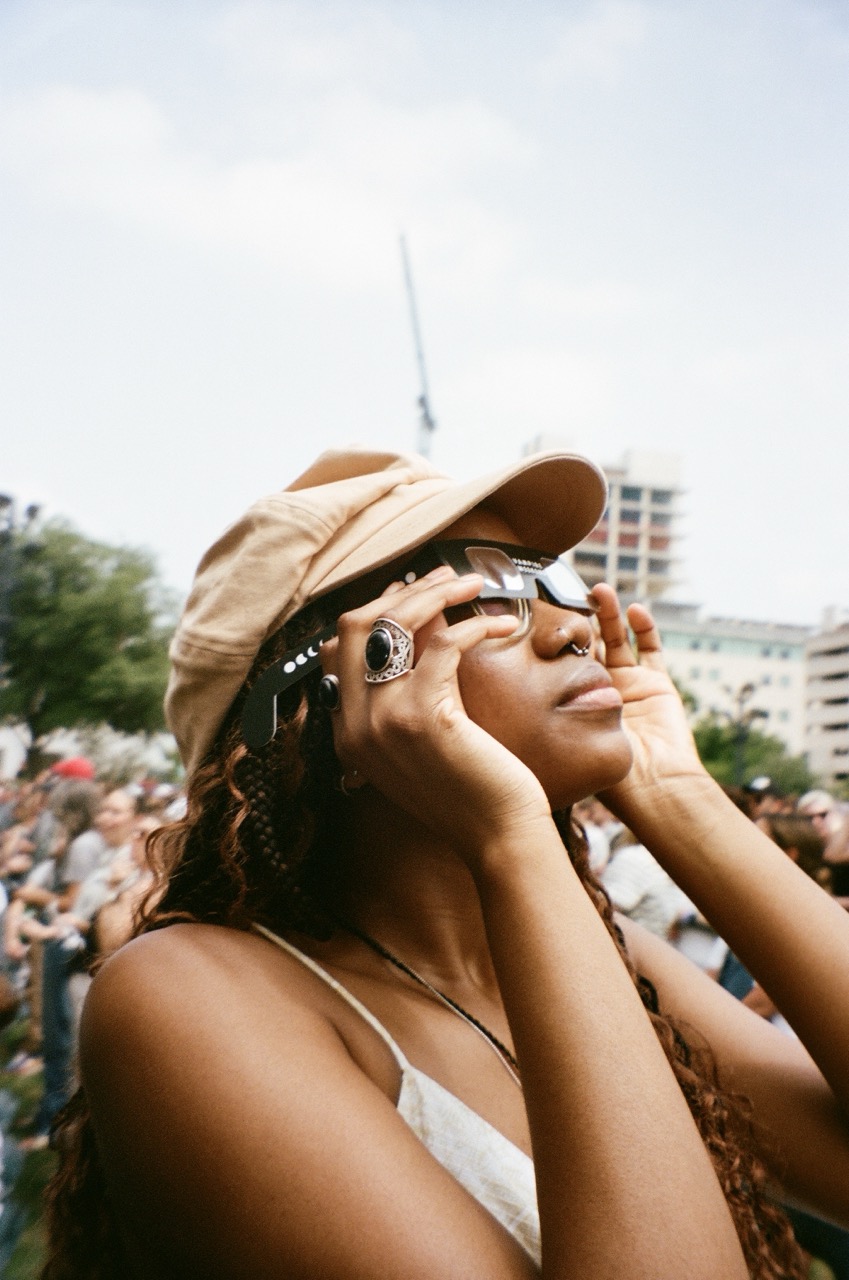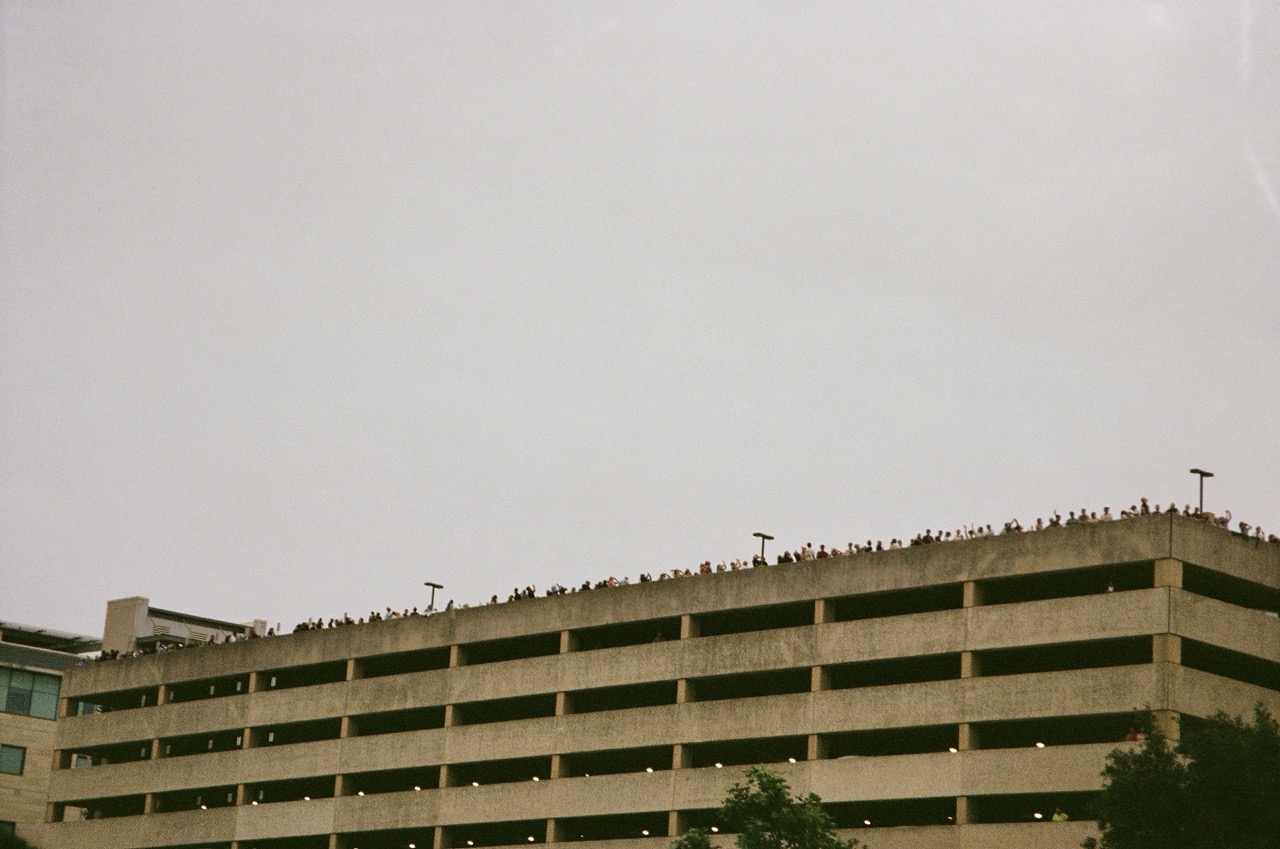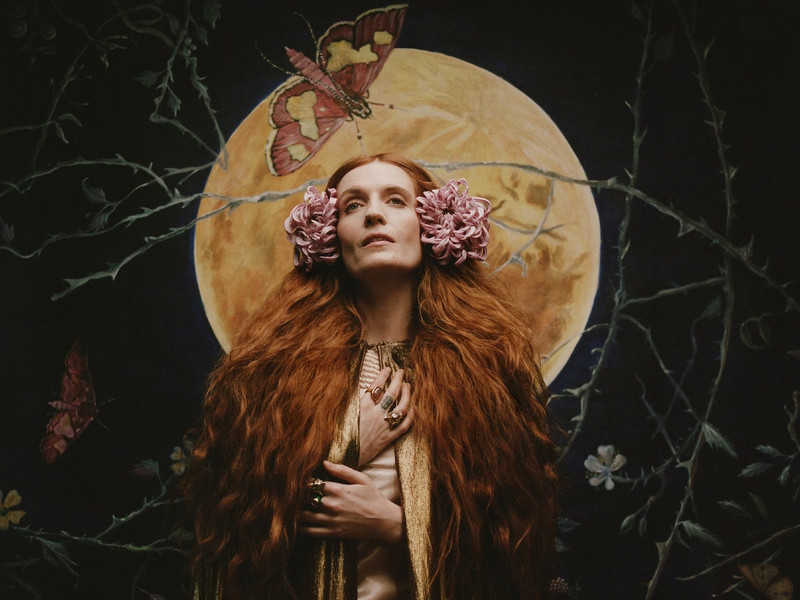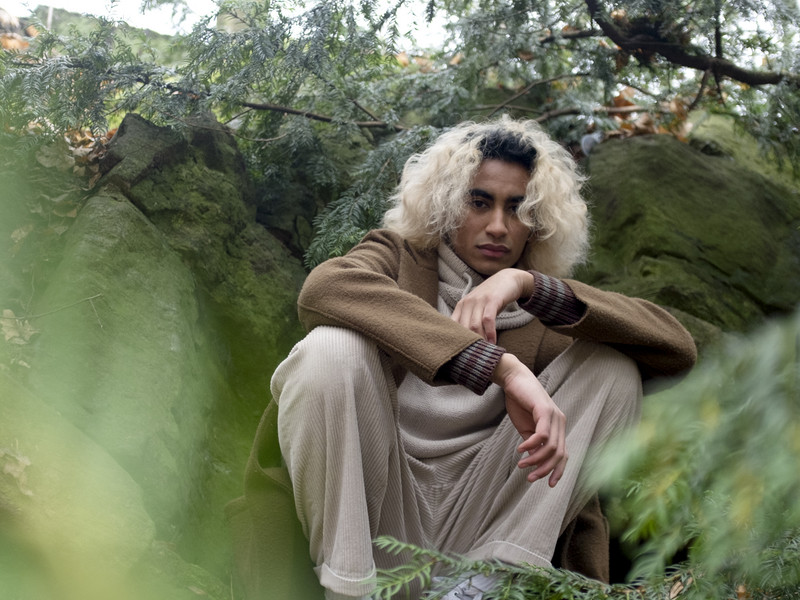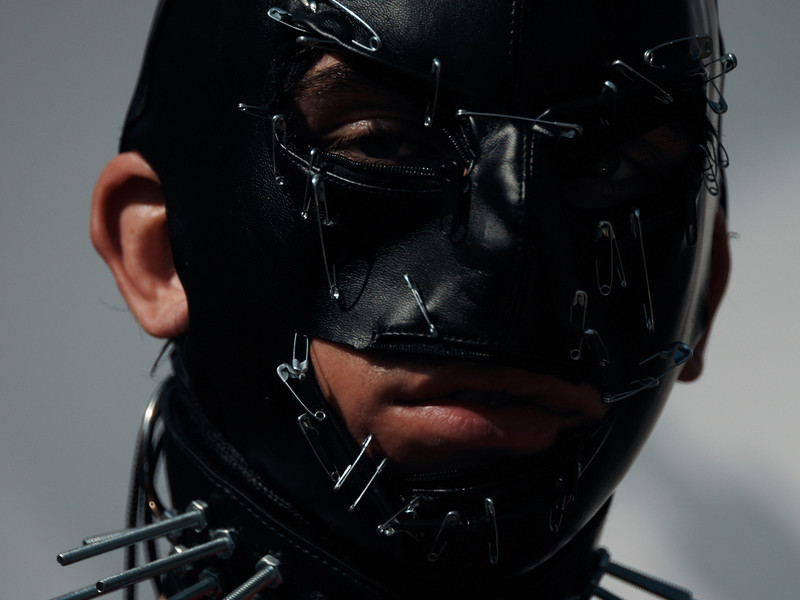Role Model’s Debut Album Rx Encapsulates Love
Role Model infuses other talents like rapping in this new project, making it a well-rounded album in sound. His tone lays perfectly on these stripped-back beats and indie-pop-inspired instrumentals. You can feel his authenticity in every track as he walks you through a story he’s trying to tell. As you turn each page, it makes you feel what he feels and see what he sees. He’s high off love and who wouldn’t be, hence Rx.
Dive into his world a bit in this exclusive interview with office below where he talks about not just his love life, but his creative process, perspective on the world, and inspirations.
So your stage name has become a big part of who you are, but we're wondering who your role model is, or who is someone that inspired you musically or stylistically?
I think the only role model I ever really had growing up, and still, is my parents. There was never anyone that I looked up to as a role model more than them. I had some obsessions -- I was obsessed with Elvis when I was a kid -- this weird Elvis, teen-boy obsession. I think stylistically, as far as fashion, I think a lot of women. I pull from them because I like the silhouettes more. I've always been drawn to that type of stuff. And music-wise, it's all over the place. There's Kacey Musgraves -- I look up to her big time. When I'm in that type of moment, it's Drake, and sometimes I'll try and literally channel that in the studio.
So your music videos take on really cinematic qualities. Some of them feel like your own movies; what's your favorite film?
I love it that's a very nice thing to say. I went to film school so that was a big part of it. So I get to bring that into it now, which is fun. I get to mix the two passions. I'm a big movie guy, but it's the same thing. It's all over the place. I love really weird shit, the Hereditary stuff, It Follows, all of the Ari Aster stuff.
Do you ever direct your own music videos?
Well, I can't take credit for that. I write them and then I give it to a director, Dylan Knight, who I work with on almost everything. I let him do it -- he's doing the hard part. I just get to write it out in as much detail as possible and give it to him. He's doing the work, but it's fun to conceptualize. Even when you're making the song, sometimes it comes right away and then you get to bring it to life.
Making the Coachella lineup is a huge accomplishment -- congratulations.
Thank you.
How did you feel when you found out you'd be performing?
I remember I found out six or seven months before it was announced and I flipped out. I called everyone I knew. It's been a dream forever. I'm pretty sure I celebrated by myself that day because we were still in quarantine, but it was incredible.
That is incredible. How do you hope people receive your debut album and what is the takeaway?
I hope that it pushes people in pop music to find unique points of view. I think trying to write an album about falling in love and doing it in a unique way was a huge challenge, but I wanted to push myself very hard on that. To not just make very lovey-dovey songs and corny stuff.
Yeah, it's definitely not corny.
Thank you. I think the album as a whole, when people listen to it, will get that idea. I want to change what's on the radio and all that stuff. The goal is to make whatever this is, a mainstream thing. Some people would frown upon that, but that's the dream.
I like that. So was there a moment or thought you've had that you think changed the trajectory of your life?
Yeah, so when I was in Pittsburgh at film school, I was in my third year -- I started making music at the end of my freshman year and immediately fell in love with it, but school suffered and I was failing everything; didn't care anymore because I had music and that was it. And I wasn't in school for music. So I thought there was nothing I could do. There was just this slow progression where I was literally failing for around two years or a year and a half. And, well, colleges want you to stay in because it's a lot of money that they're losing if you don't. So they kept me in and finally, I was at a point where they were probably about to let me go. But also, my music was not doing what I wanted it to do yet. So I was in this place where I was like, 'I'll give it a month.' And in that month I got a DM from Mac Miller's manager, and they're both from Pittsburgh so they keep their ears to everything Pittsburgh. They said they really liked the EP, the first EP I put out called Arizona in the Summer and they wanted to fly me out and meet and make music, whatever. And -- it was kind of this same thing with Coachella. I ran up and down the stairs in my apartment and had that beautiful, just pure joy moment. That kind of changed everything. I went there and then the music industry started hearing about that, and that's when labels started doing offers and the not-so-fun stuff. But that was kinda the push I needed. And then I was like, 'Why was I ever about to give up?' I was really close. I was about to just stop altogether.
What's your biggest dream and has that changed since you were a kid?
Definitely. I mean, when I was a kid, my hobbies changed every week. I painted as a kid. I followed a lot of what my brother did. So when my brother picked up a camera and did photography, I used to steal his camera and do photography. And then he started getting into film and I started taking his film camera and doing that. I never really got to find what I wanted to do. But once I found music, it was just like, 'I want to see how far I can take it.' And that's the bottom line. I have no idea what that means, but I want to see where it goes.
So your album name is RX. Tell me about what that album process was like? And if you want to reveal what the name means?
The name will be revealed in the last song of the album. But as far as making the album, the pressure was crazy. I had never experienced anything like it; it was amazing. It was fun. I did the whole project with my producer, Spencer Stewart, and we would take writing trips because it was during COVID. So we would have to just get out of LA. We did a lot of trips together where we were just staying for a week or two. And I think working with him, he pushed me really hard to -- one, use my voice in ways that I haven't used it. He taught me how to take care of my voice, to do harmonies that I would never be able to do in my life. I'm not the most actual musical person and he taught me a lot. So he helped push that. Also on the writing side -- my old music, it's cool. I love it. I love performing it. But if you listen to the lyrics, nothing is connected or cohesive. It's just a spill of whatever came to mind, which is cool, for what it is. But this time, he really pushed me to have a theme in every song, to have a story or a complete narrative. So yeah, these are much more structured, well-written songs. I think the writing is what we focused on the most.
I think my favorite from the album was "if jesus saves, she's my type." What was the moment you realized that the album was complete and ready to be shared with the world?
That was the worst part.
Oh really?
The worst. Because for the two years that we were working on it, we thought we had finished it and then the next week I'd be like, 'Yo, scrap these eight. Let's just keep going.' And I would keep doing that, and poor Spencer, like what a trooper for sticking with it. But it was just a never-ending thing and I'd be like, 'I need a really upbeat one. We have too many slow songs and I need this for the live shows.' I was constantly doing that and then finally, in the end, I was dried up mentally. I just couldn't do it anymore, so I said, 'Okay. I think we have everything. We have the start. We have the finish. We're good.' Taking the hands-off was the hardest part, but I think we did it at the right time.
So, I did a bit of digging and found out that you rap.
Rapped...past tense, past tense.
But what made you switch to singing?
That's how I got into music, but also, I was in Pittsburgh when I found music. The whole music scene in Pittsburgh is just rap. That's everything — obviously, Mac and Wiz are the goats to everyone; their faces are everywhere. So I was just around it constantly. Everyone I hung out with was rapping. I found two kids that were in my dorm that had the equipment and rapped and I just wanted to try it with them. I started going to shows, and local Pittsburgh artists. I wanted to be like all of them. I'd go to the shows to see these local rappers and be like, 'I want that. I want to go on those stages and do that.' So that was it. But also, I grew up on rap. I was skating and snowboarding as a kid, and those two sports are surrounded by Wu-Tang and classic rap.
I think it was already there, and when I found music, that's when it synced. But at one point, I had just found this beat that someone sent me a year before, that I scrapped, and I found it again. It was like this Penny in the Quarters sample, like an acoustic guitar. And I thought, 'This is so beautiful.' It reminded me of stuff my parents played, that I used to hate. So I made a song called 'Cocaine Babe,' changed my name to Role Model on SoundCloud -- that was the first thing that came to mind. I put it out and it did better than anything I had put out. I was like, 'Okay, this is a sign that this is probably more me and it comes more naturally for me.' I wasn't trying to be rapping about watches that I didn't have -- it was more realistic for me. I kind of ran with that. And then 'Girl in New York' happened and everything started from there.
